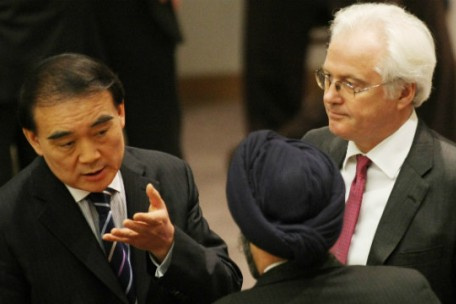The Fissure between the Big Powers

The second UN Security Council resolution regarding Syria’s crisis failed to pass due to a Russian veto, while China’s support of Russia’s position was somewhat surprising. The repeated opposition of Russia and China regarding this important international issue during recent months displays a gap between the global powers, which could lead to commotion in managing international crises.
Continuation or expansion of the current division amongst these great powers could lead to a structural change in the process of managing international crises. This is significant, as it presents a change in the pattern of interaction between the great powers in the post-Cold War era.
Following the Second World War, the UN Security Council was established with powerful nations (and the victors of that war) as its permanent members. After the Cold War, the West tended to lead the Security Council by having both Russia and China on its side, or could at least influence their docility. Therefore the West would operate freely regarding managing any international crisis while this intervention had become the norm in international politics. The term “international community” would be constantly echoed, as the actions of the UN Security Council would be branded as the will of the international community.
Of course China and Russia’s opposition to the West regarding Syria is not evidence of a prominent predicament in the management of international crises, yet if this gap between these powers persists there could be fundamental changes in how the international community deals with crises:
1- The importance of the UN Security Council in managing international crises may be reduced. If China’s and Russia’s opposition to the West in dealing with international crisis deepens, the Security Council could face a gridlock similar to that during the Cold War era.
2- Rivalry between powerful countries has historically been an agent of change in international politics, which has slowed down in the post-Cold War era. Recent opposition could once again cause a fundamental change in the process of international politics.
3- Geopolitical rivalry could become more important in international politics as the world once again becomes a geopolitical battleground.

